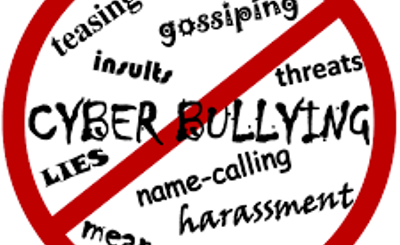A 2015 U.N. report dubbed “Combatting Cyber Violence Against Women & Girls: A Worldwide Wake-up Call” equated cyber violence with physical violence with regard to impact. According to the report, both forms of violence are damaging. The report further noted that women continue to grow vulnerable to cyber violence as more people gain access to the internet.
Fast forward to 2018, internet use has spread across more regions and unfortunately, cyber violence cases are also on the rise. More and more women continue to endure cyber violence and the saddest part is that most cases go unreported.
In Kenya, the Computer and Cybercrime Bill 2016 was approved in 2017. The bill monitors, controls and seeks to eliminate cybercrimes. This is definitely a step in the right direction but a lot remains to be done. In 2017, the International Telecommunication Union (ITC) ranked Kenya among the worst countries when it comes to protecting children from cyberbullying. This has also been reflected in how the government has been responding to cyber violence especially against women and girls who happen to be the main victims. To be fair, the government cannot act alone if instances of cybercrimes are to be prevented and dealt with effectively. Tech firms should also play their role especially since cyber violence happens on their platforms.
What are tech firms doing to fight cyber violence?
Industry players should not be immune to the responsibility of fighting cyber violence. The good news is that most of them have recognized this vice as unlawful and some have demonstrated a commitment to dealing with it. This has been done through the creation of monitoring and reporting tools, closure of accounts belonging to perpetrators of cyber violence, production of reports detailing their response to this vice, taking down harmful content, and cooperation with law enforcement.
Perhaps the first and most important step is to have a policy that clearly defines and outlines what each firm considers offensive or inappropriate. In this case, universal human rights standards should act as a guide. Most tech firms have such policies.
Currently, efforts of policing content on the various social media platforms have not yielded desired fruits since cyber violence persists.
Various industry players have been responding to calls to fight cyber violence differently. Here is a breakdown of the steps YouTube, Twitter, and Facebook have taken to fight this vice.
-
Youtube
After Google, YouTube is the second most visited website globally according to Alexa.com. This, thus, means that cybercriminals may take advantage of the wide reach to spread hate and abuse. The platform’s policy center breaks down what constitutes cyber harassment and proceeds to give tips that can help prevent and deal with cyberbullying. They affirm that they want users to “…to use YouTube without fear of being subjected to malicious harassment”. A notable thing about YouTube’s approach is that it acts as a learning platform especially since it gives examples of what constitutes cyberbullying.
-
Twitter
Twitter is perhaps one of the many platforms that have been fighting cyberbullying since its establishment. The ugly side of Twitter has been revealed by individuals who hide behind the keyboard. At some point, the giant social networking site was challenged to decide whether it sided with the cybercriminals or the victims. Cases of cyber violence are still reported but the company has rolled out tools to enable users to prevent and report cyberbullying. Perhaps one of the best features is a filter that that ensures that users don’t see inappropriate content. The company also reserves the right to suspend accounts that violate their harassment and cyberbullying policies.
The giant social media site is fighting cyber violence in other ways. The first and perhaps the most used feature is the expanded notification filtering. This feature allows users to filter which types of accounts they would like to receive notifications from. This tool filters abuse from unverified accounts, those without a profile photo, or accounts a user considers unwanted. The second way is through expanding the capabilities of the mute button. Users can mute keywords or certain phrases from their notification section. Users also have the autonomy to decide whether these words should be muted indefinitely, for a day, year, etc.
Other features include greater transparency when it comes to reporting, safer search results, hiding abusive tweets, and preventing the creation of accounts by flagged users.
-
Facebook
Cases of account hacking have been rampant on the Facebook platform. Chances are that you have come across pornographic images or language on a friend’s wall and wondered what got into them. In some cases, the hacker sends vulgar and explicit sexual messages to friends. Recently, a jilted lover from Nakuru posted explicit Whatsapp chats between him and his ex-lover on Facebook for all to see. The snapshots were enough to make one blush. He even threatened to expose more. The man was not happy with the fact that the ex-lover had resolved to end the relationship and thus decided to take revenge. The young woman was distraught and deeply humiliated. The post was taken down within a few hours but the damage has already been done. Such is the plight of many Kenyans.
Facebook has come under pressure from people demanding that the social networking site work to improve online safety for its users. The company, through its CEO Mark Zuckerberg, continues to express their commitment to fighting cyber violence. Needless to say, we all know that the platform puts the burden of promoting safe online spaces to users.
One of their main prevention strategies is reporting. Users are requested to report any case of inappropriate content. While this is a great idea, the process of taking action takes a bit long in some cases. The other feature that this tech giant has introduced is the filter that allows users to moderate content published by others. Page admins can make use of the profanity filter and block certain words from appearing on their page.
Facebook has, on several occasions, expressed its commitment to fight cyberbullying but cases are still on the rise. In an open letter dated January 4, 2018, Zuckerberg has expressed his commitment to fixing issues facing the platform including harassment and abuse. In the letter, Zuckerberg admits that his team may not prevent all mistakes or abuse but they will definitely correct past mistakes and ensure that their tools are not misused.
In the end, the burden of creating safer online spaces lies with users, governments, and the industry. There is the need to develop a shared culture of responsibility from the main players such that potentially harmful material can be eliminated from online spaces. Potential victims can take precautionary measure to avoid cyber violence but it will take more than that to eliminate or at least greatly reduce the problem.
Do you think tech firms are doing enough to curb cyber violence? Share your views in the comments section.







Leave a Reply